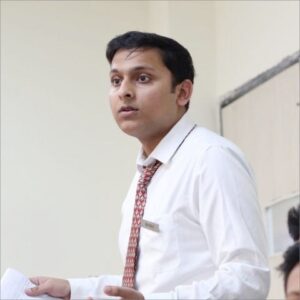Author :
Adnan Abbasi is currently pursuing Bachelor of Arts (Hons.) degree majoring in Social and Political Science from Ahmedabad University. He is a Writing Fellow at Students for Liberty’s Fellowship for Freedom in India.

January 1st, 1938, just a few days before his death, Allama Iqbal prayed to God for all humanity. In his prayer, he spoke against the heartbreak and injustice he saw. The message of this prayer is deeply emotional and speaks to the core values of the classical liberal cause. It resonates with our belief in the inherent dignity and worth of the individual and the dangers of collectivist ideologies and power dynamics that seek to undermine this dignity. It speaks to the importance of limited government and free markets as a means of protecting individual liberty and promoting social cooperation rather than relying on the coercion and force of the state or other collectivist entities.
He laments that “the spirit of freedom and the dignity of man are being trampled underfoot in the way of which not even the darkest period of human history presents a parallel.” The collectivist ideologies that seek to divide and conquer, such as imperialism, nationalism, communism, and fascism, are masking the true face of tyranny and oppression. These forces are causing misery and suffering in every corner of the earth, as “hundreds of thousands of men are being butchered mercilessly” and “engines of destruction operated by science are wiping out the great landmarks of man’s cultural achievements.”
In the modern world, the vast majority of money is created and controlled by central banks and governments through fiat money. This means the value of money is based on the faith and credit of the issuing authority rather than a physical commodity like gold. The government can finance its spending and deficits without telling us; it can simply tell the central bank to print more money. In the processing devaluing the money itself, which means they are essentially stealing from our savings. And as we know from history as well as our recent past. The government and central bank choose to bail out failing companies or prop up asset prices, which leads to the concentration of wealth and power in the hands of a select few, creating an uneven playing field resulting in social and economic inequality.
The following comment by Iqbal is so representative of our monetary system; he calls out the rulers and governments that have failed in their duty to protect and uplift humanity, instead choosing to “pander to the greed and avarice of their own particular groups” and “robbing [weaker peoples] of their possessions, of their religions, their morals, of their cultural traditions and their literatures.”
Not just that, the amount of wars countries fight today is a result of this economic system intertwined with what US President Eisenhower called the “military-industrial” complex. The so-called “military-industrial complex” refers to the interconnected relationship between the military, defense contractors, and other industries vested in promoting military intervention and spending. The ability to finance these endeavors by creating more money provides a strong incentive for governments to engage in military actions, even if they are not in the best interests of the people in general.
The “military-industrial” complex is premised on the idea of building an empire, thus imperialism. Be it the glories of the Russian empire embedded in the current aggression against Ukraine or American troops placed in more than 70 countries, all this is a result of one nation attempting to build an empire to exploit the other. Iqbal was far-sighted; he spoke of the dangers of nationalism and imperialism, which “shed the blood of millions and reduced millions to servitude” in the pursuit of power and domination.
Then, riots and endless in-fighting are going on in many places worldwide. Iqbal points to such a tragedy by using the example of Spain, where people of the same race, nationality, language, and religion are “cutting one another’s throats and destroying their culture and civilization by their own hands owing to a difference in their economic creed.” He rightly points out that this tragedy shows that “national unity too is not a very durable force.” And today as well, we see these divisions and conflicts arising within societies due to economic, political, or social differences.
Iqbal’s call for the “brotherhood of man” and the recognition of every individual’s inherent dignity and worth is particularly relevant in the face of these divisions and conflicts. It is a reminder that at the heart of all humanity, we are all connected and share common goals and values. By embracing this sense of unity and working towards a more just and equitable society, we can begin to address the problems that threaten to divide us and undermine our common humanity.
This message is essential in today’s world as we continue to grapple with issues such as inequality, polarization, and the erosion of civil liberties. By building bridges, fostering understanding between different groups, and standing up for the rights and dignity of all people, we can create a more peaceful and prosperous world for all. As we say goodbye to 2022, we must remember that Iqbal’s prayer is a call to action for all of us to strive towards a better world where the brotherhood of man is upheld and the dignity and worth of every individual are respected and protected.
PARTNERS